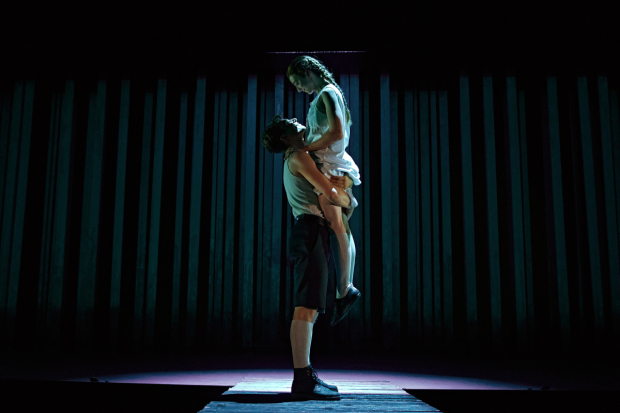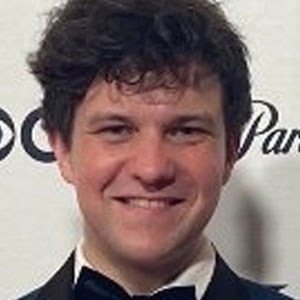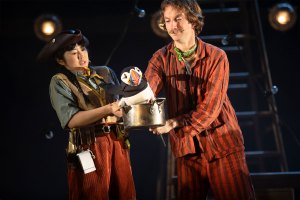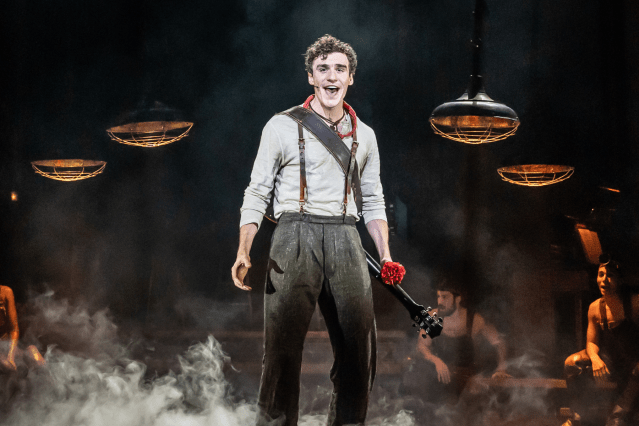
© Manuel Harlan
Nazis have suddenly returned to the London stage, as if today's playwrights hope to find some answers to our fragmented, populist times in the events of the past. Hot on the heels of Once Upon A Time in Nazi Occupied Tunisia, a wild comedy which attempts to uncover reasons for supporting evil, comes Camp Siegfried, which builds an entire world around two people and a little-known historical event.
Underlying Bess Wohl's play is the fact that through the 1930s, American youngsters of German origin could spend their summers at a number of summer camps, including one called Camp Siegfried on Long Island, New York, where alongside learning camping skills, practising archery and dancing to oom-pah bands, they were inducted into Nazi ideology and groomed as the future Aryan leaders of America.
Wohl imagines two young people, known only as Her (Patsy Ferran) and Him (Luke Thallon) arriving at such a place and in the summer of 1938, navigating the social and sexual anxieties of adolescence while simultaneously imbibing pro-Hitler propaganda alongside the beer and the frankfurters. In doing so, she seeks – explicitly – to examine how hate and anti-Semitism is taught and encouraged and how young people, uncertain of who they are, can suddenly latch onto a cause as a way of solidifying their own sense of self.
For the boy, success in the camp is a way of cementing his relationship with his German family, reassuring himself that he is strong not weak. The girl, tentative at first, is swept away by the power of the ideology, by the idea of revolution, by the kind of hysteria that led to such unthinking adulation of Hitler. The moment when she is chosen as class speaker and rises to a frenzy of hatred in her demagogic performance is chilling. So is the speech in which he talks about nearly murdering a boy who becomes "a problem to solve" rather than a human being.
But although the insights on the camp are fascinating – she lives on Hitler Way, he's just on the corner of Hitler and Goebbels; they are encouraged to "be social" as a way of breeding a pure master race – the characters have to carry too much baggage fully to convince. In particular, the girl's conversion first into a fanatic, and then – thanks to an encounter with a kindly doctor in New York, who may or may not be Jewish – back to reason again is sketchy and so unconvincing.
The play is however served by a nigh-on faultless production. Ferran and Thallon are inspired casting, managing to suggest they are teenagers without ever resorting to caricature. Both create characters with such careful detail that they compel attention. At first, she's all nervous tics and wry observations, while he seeks to charm; later the roles are reversed, his rising anxiety set against her increasing confidence.
Katy Rudd's direction allows them psychological naturalism within a stylised setting and structure. Rosanna Vize's design and Rob Casey's lighting conjure the idea of woods and lakes with minimal means; Tal Rozner's occasional videos give a glimpse of the camp as it actually was. It's all very skilful and heartfelt, but in the end, it is so anxious to make its entirely serious points that it loses its way as drama.












